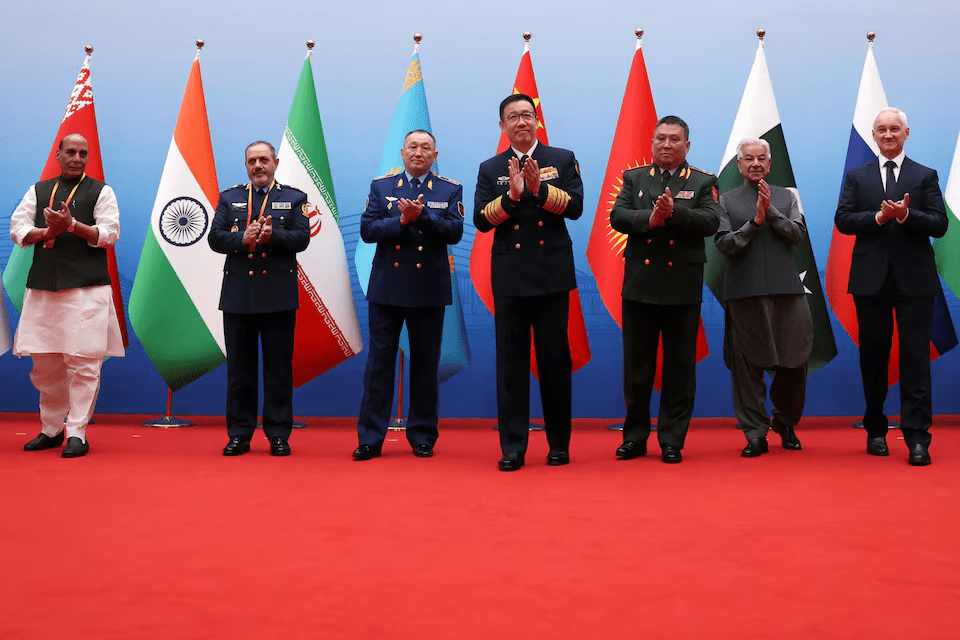Defense ministers in the Shanghai Cooperation Organization (SCO) were unable to adopt a joint statement at their meeting in Qingdao, China, after India reportedly refused to sign the document and claimed it was Pro-Pakistan for not referring to the April attack on Indian tourists.
SCO is a 10-member Eurasian security and political bloc consisting of China, Russia, India, Pakistan, Iran and several Central Asian states. The defense ministry was held in front of the annual leaders’ summit, which was scheduled for later this year.
Federal Defense Minister Khawaja Muhammad Asif led Pakistan’s delegation at the meeting, confirming the country’s obligation to regional stability, collective security and fighting terrorism.
At his address, the minister condemned Israel’s recent military acts against Iran and the continued violence in Gaza, calling for peaceful decisions for long -standing global disputes, including Kashmir and Palestine.
Read more: SCO brings Pakistan, India Defense Ministers Together
Emphasizes the importance of SCO as a platform for dialogue, mutual trust and regional cooperation, repeated Mr Asif Pakistan’s commitment to the principles of the United Nations Charter and SCO -Charter and described them as important to promote global peace, good neighboring conditions and multilateral cooperation.
He further condemned the recent terrorist attack in Indian illegally occupied Jammu & Kashmir (IIOJK) and called on the international community to hold responsible for those who finance and support such actions. He also referred to the Jaffar Express bombing in Balochistan as another example of cross-border terrorism that undermines regional peace.
Mr. Asif emphasized unresolved conflicts as serious threats to global stability, and emphasized the need for peaceful solution of issues such as Kashmir and Palestine through diplomacy, mediation and sustained dialogue.
However, the meeting allegedly faced a setback when India refused to approve the final statement and argued that the favored Pakistan’s attitude. The Indian delegation opposed the failure of any reference to the April 22 attack on Hindu pilgrims in IIOJK, where 26 people were killed.
India blamed Pakistan for the incident, a prosecutor Islamabad rejected. The attack led to some of the most intense cross -border exchanges this year after India claimed to have targeted “terror infrastructure” in Pakistan and Azad Jammu and Kashmir.
Pakistan denied the accusation and stated that the targeted places were civilians and had no relations with terrorism.
ALSO READ: Rajnath to attend the SCO summit in China
With reference to anonymous sources, the foreign news agency reported that Indian Defense Minister Rajnath Singh believed the draft communication “diluted India’s attitude to critical issues such as terrorism and regional security.”
Singh allegedly said that the joint statement “fits Pakistan’s narrative” because the omitted April attack, but included the mention of terrorist activity in Balochistan – a region where Pakistan has long accused India of supporting separatist elements, claims that New Delhi denies.
“Certain members, Member States, could not reach agreement on certain questions, so the document could not be terminated on our side,” the Indian spokesman for Indian Foreign Ministry Randhir Jaiswal told journalists by a weekly media briefing.
“India wanted concern for terrorism reflected in the document, which was not acceptable to a particular country, and therefore the declaration was not adopted,” he said without naming the country.
The Qingdao meeting first marked Senior Minister from India, and Pakistan shared a scene since their military standoff in May.



